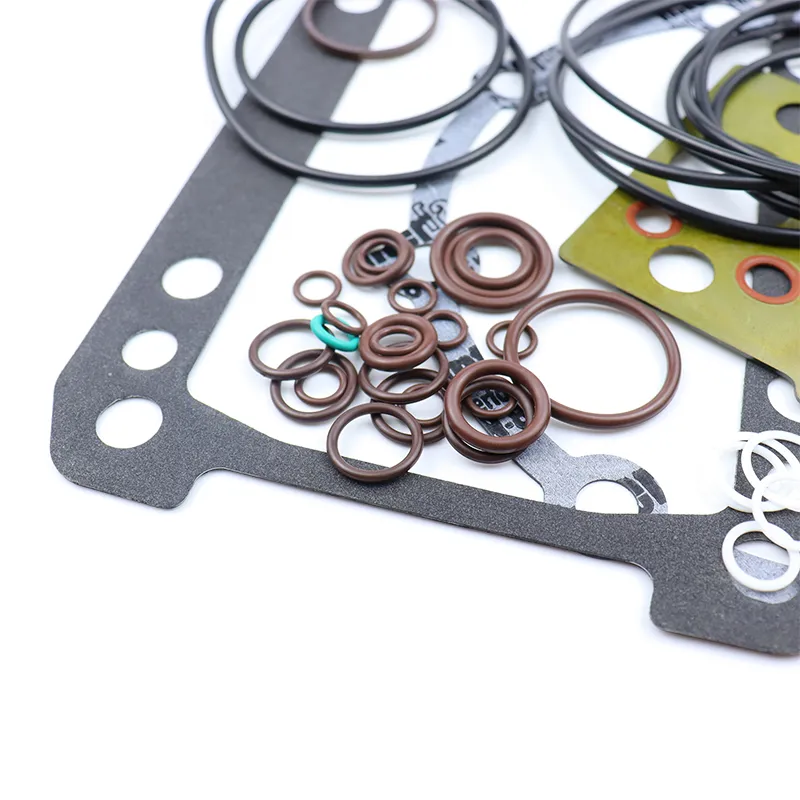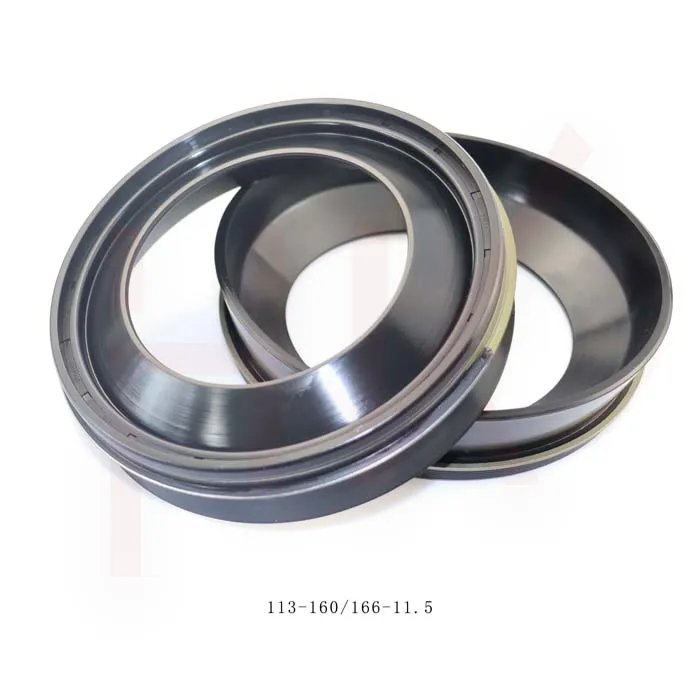Nov . 05, 2024 11:18 Back to list
hydraulic piston oil seals
Understanding Hydraulic Piston Oil Seals
Hydraulic systems are integral to a wide array of machinery and equipment, driving their operation with precision and efficiency. At the heart of these systems, hydraulic piston oil seals play a crucial role in ensuring optimal performance. This article delves into the importance of these seals, the materials used in their manufacture, and the factors influencing their selection and maintenance.
What are Hydraulic Piston Oil Seals?
Hydraulic piston oil seals are specially designed components that prevent fluid leakage between the piston and the cylinder in hydraulic systems. They ensure that hydraulic fluid is contained within the cylinder, allowing the system to build and maintain pressure. While they may seem like simple rubber rings, they are engineered for an environment where temperature, pressure, and chemical exposure can be extreme.
Importance of Hydraulic Piston Oil Seals
The importance of oil seals cannot be overstated. Firstly, they contribute to the efficiency of the hydraulic system by minimizing leaking, which preserves system pressure and prevents loss of hydraulic fluid. This efficiency not only enhances performance but also prolongs the lifespan of the machinery.
Secondly, hydraulic piston oil seals reduce contamination risks. In a hydraulic system, the presence of foreign particles can cause significant damage. Seals ensure that external contaminants do not enter the hydraulic fluid, thereby protecting sensitive components from wear and tear.
Lastly, oil seals are integral to safety. Any leakage in hydraulic systems can lead to hazardous situations, especially in heavy machinery or industrial applications. By providing a reliable seal, hydraulic piston oil seals contribute to the safe operation of equipment.
Materials Used in Seals
Hydraulic piston oil seals are made from a variety of materials, each with specific properties that suit different applications. The most common materials include
- Nitrile Rubber (NBR) Known for its excellent resistance to oil and temperature fluctuations, NBR is widely used in hydraulic applications. It performs well in environments with moderate temperatures and oils.
- Fluoroelastomer (FKM) This material is chosen for extreme conditions, with excellent resistance to high temperatures and aggressive chemicals. FKM seals are often utilized in aerospace and automotive applications.
- Polyurethane With its superior abrasion resistance, polyurethane seals are ideal for heavy-duty applications. They can withstand high pressures and have a longer service life compared to traditional rubber seals.
hydraulic piston oil seals

- PTFE (Polytetrafluoroethylene) Known for its low friction properties and chemical resistance, PTFE seals are suitable for high-speed applications or where chemical compatibility is crucial
.Selecting the Right Seal
Selecting the right hydraulic piston oil seal is critical to the performance and durability of a hydraulic system. Key factors to consider include
1. Operating Temperature Assessing the temperature range is crucial, as different materials perform better under specific thermal conditions.
2. Fluid Compatibility Understanding the type of hydraulic fluid used is essential. The seal material must be compatible to avoid degradation.
3. Pressure Ratings The seal must be suited to the operating pressure of the system. Higher pressures typically require seals with reinforced designs.
4. Environmental Conditions Consideration of external factors, such as moisture, dust, and chemicals, will dictate the choice of material for the seal.
5. Manufacturer Recommendations It is advisable to consult machinery manufacturers or seal suppliers. They can provide guidance on the most suitable seal for your specific application.
Maintenance Considerations
Proper maintenance of hydraulic piston oil seals is vital to ensure longevity and reliability. Regular inspection is essential to identify signs of wear or damage. Keeping the hydraulic system clean, monitoring fluid levels, and replacing worn seals promptly can prevent larger system failures.
Conclusion
Hydraulic piston oil seals play an indispensable role in the functionality of hydraulic systems. By preventing leaks, protecting against contamination, and ensuring safety, these seals are critical components in various applications. Understanding the materials, selection criteria, and maintenance practices associated with hydraulic piston oil seals can significantly enhance the performance and lifespan of hydraulic equipment. Proper attention to these details not only ensures efficiency but also promotes safety in operations, ultimately contributing to the overall success of hydraulic system applications.
-
Reliable Oil Seal Wheel Hub Solutions for Industrial & Automotive Use
NewsNov.17,2025
-
Durable Front Hub Oil Solutions for Industry – HKAiSeal
NewsNov.17,2025
-
Wholesale Hydraulic Pump Motor Seal Kit A4VSO250 | In Stock
NewsNov.17,2025
-
Pump Seal Kits: Essential Components for Industrial Reliability
NewsNov.17,2025
-
TCV Oil Seal - Double-Lip, Spring-Loaded, High Temp & Wear
NewsNov.17,2025
-
Hydraulic Seal Kits: Reliable Solutions for Industrial Equipment
NewsNov.17,2025
-
Combined oil seal 659214 12001903B, fits 119990, NBR OEM
NewsNov.17,2025
Products categories
















